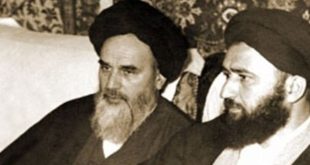With parents such as Imam Ali ibn Abi Talib (p) and Sayyida Fatima (p) and grandparents such as Prophet Muhammad (pbuh) and Lady Khadija (p), there is no doubt that the upbringing of Sayyida Zaynab (p) would be beyond exemplary.
Lady Zaynab (peace be upon her), the daughter of Imam Ali (p) and Lady Fatima (p), is a timeless symbol of strength, patience, and unwavering faith. Her life offers profound lessons for anyone seeking inspiration in the face of adversity.
1. Courage in Adversity
Lady Zaynab’s courage shone brightest during the tragedy of Karbala. After witnessing the martyrdom of her brother Imam Hussain (p) and other family members, she stood firm in the court of Yazid, fearlessly exposing his tyranny. Her bravery teaches us to stand for justice, even when the odds are against us.
2. The Power of Patience
Despite the immense loss, Lady Zaynab (p) displayed extraordinary patience. Her ability to endure suffering without losing her faith reminds us of the importance of trusting God’s plan, no matter how challenging life becomes.
3. Speaking Truth to Power
Lady Zaynab’s eloquent speeches in the aftermath of Karbala were pivotal in preserving the message of Islam. She demonstrated that words, when used wisely, can be a powerful tool for change.
Lady Zaynab’s life is a beacon for anyone seeking resilience, faith, and a commitment to justice. Her legacy continues to inspire generations, proving that true strength lies in unwavering devotion to truth and justice.
With parents such as Imam Ali ibn Abi Talib (p) and Sayyida Fatima (p) and grandparents such as Prophet Muhammad (pbuh) and Lady Khadija (p), there is no doubt that the upbringing of Sayyida Zaynab (p) would be beyond exemplary.
She grew up in Medina, where she was married to Abdullah ibn Jafar al-Tayyar, who was brought up under the direct care of the Holy Prophet (pbuh & hp)[1]. Together they had five children, four of whom were sons, Ali, Aun, Muhammad, and Abbas, and one daughter, Umm Kulthum[2].
Sayyida Zaynab (p) was no stranger to death or oppression. We know her best for the crucial role she played during the events of Karbala in 61 A.H. when she was 55 years old. She witnessed the martyrdom of her own children, her nephews, companions, and most significantly her beloved brothers Abbas ibn Ali Talib (p), and Imam al-Hussain (p). Sayyida Zaynab’s (p) strong upbringing, piety, and nobility ensured she was not weak in the face of adversity. Therefore, after Imam Hussain (p) was mercilessly martyred, she became the pillar for the other women and children. She, therefore, serves as an example of steadfastness, courage, humility, and strength for all of us.
The following is an excerpt of the sermon Sayyida Zaynab (p) gave in the courtyard of Yazid’s palace in Damascus after they were brought as prisoners:
“Whatever you consider today, as a bounty would turn into reparation for tomorrow, whatever you have sent in advance would be received by you. Allah does not like oppression toward his servants. I complained to Him and put my trust upon Him; thus whatever deceit you want to practice, go ahead and do it; whatever endeavors and efforts you can make, try them. By Allah you would never be able to remove our remembrance from the hearts [of the believers], nor would you ever be able to destroy our revelations; you would never reach our splendor and majesty; you would never be able to wash this ugly spot of tyranny from your [dress]; your opinion and suggestions are invalid and unstable. The duration of your rein is very short, and your assembly would soon be scattered; on that day when the heavenly crier would announce: ‘Praise be upon the Lord of the Worlds, and our beginning- with prosperity and salvation-and our end-with martyrdom and blessing. I beseech the Almighty to bestow upon them [Imam Hussain (p), his family (pbut), and his loyal companions] His best recompense and may [He] increase their rewards. O You, Who is just and righteous toward us, and Who is the most compassionate among all the compassionate ones, we put our trust only upon You.” [3]
——————————————————————————————————————————————–
References
[1] Muna Haeri Bilgrami, The Victory of Truth: The Life of Zainab bint Ali (p), (Qum: Ansariyan Publications).
[2] Muna Haeri Bilgrami, The Victory of Truth: The Life of Zainab bint Ali (p), (Qum: Ansariyan Publications).
[3] Bihar al Anwar, Vol. 45, p. 133
Source: imam-us
 Ijtihad Network Being Wise and Faithful Muslim in the Contemporary World
Ijtihad Network Being Wise and Faithful Muslim in the Contemporary World
